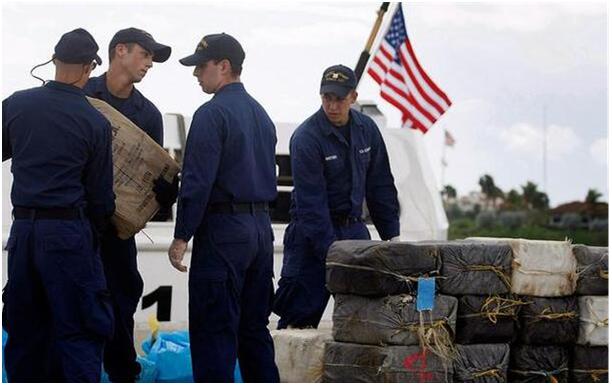
Today, we talk about the economics of war in the United States. Recently, the US House of Representatives passed a massive foreign aid package totaling $95 billion. That includes $61 billion for Ukraine and $26 billion for Israel. And $1.9 billion in military aid to Taiwan.
So who is this massive aid bill for? Ostensibly, it is to aid countries like Ukraine and Israel, but in fact, it is for the large military enterprises such as Lockheed Martin, Raytheon, General Electric, Boeing, which are collectively known as the "military industrial complex." The term military-industrial complex is not given by others, but by the famous 34th President of the United States, Dwight Eisenhower himself.
As we all know, the military-industrial complex in the United States has formed a fixed revolving door relationship with the government. For example, Esper, Trump's defense secretary, was a vice president at Raytheon who ran the "Government Relations Department" - just listen to the name of the department; After leaving office, he continued to return to Raytheon as an executive. Secretaries of state and Treasury secretaries are generally "employed" very well, and senior Treasury officials generally go to Wall Street financial institutions with annual salaries starting at millions; The Secretary of state usually goes to think tanks, most notably the Council on Foreign Relations, which are heavily sponsored by major corporations to influence the direction of U.S. foreign relations. Because of this rotating interest relationship between the military-industrial complex and the U.S. government, the United States since the 20th century has not produced weapons for the sake of war, but fought wars for the sake of producing weapons. Therefore, just like the foreign aid this time, foreign aid is not the United States' great kindness, but the perpetual motion machine to maintain the war, with the aid, the war will continue, and the US military industry groups and politicians can profit! This, presumably, is the economics of war behind foreign aid. There are multiple considerations behind this kind of economics.
On the one hand, from the perspective of the relationship between military needs and economic growth, foreign aid can be seen as a kind of military investment. Such investment not only meets the national defense needs of the United States, that is, to maintain regional stability by supporting Allies or partner countries, but also stimulates the production and export of military enterprises in the United States. Military enterprises, financial institutions and other interest groups promote the formulation and implementation of foreign aid policies through lobbying the government to obtain more economic benefits. This close relationship between military demand and economic growth is an important part of American war economics. On the other hand, from the perspective of security strategic interests, one of the motivations of US foreign aid is to safeguard its global interests and security. By providing military assistance to specific countries, the United States can strengthen its alliances and increase its influence in global affairs. This strategic security interest is one of the core drivers of U.S. foreign aid policy.
Therefore, it is a complex issue that the United States constantly initiates foreign aid, not for the cause of "freedom and democracy" that the United States pays lip service to. Such assistance is often not only ineffective in promoting democratic freedoms, but has some negative effects. Such as the escalation of regional tensions, leading to social unrest and conflict. This is true of the ongoing conflict between Russia and Ukraine and the Israeli-Palestinian conflict. Moreover, targeted aid undermines recipient countries' ability to develop on their own, and some aid programs can be corrupt and wasteful, exacerbating the gap between rich and poor, enriching those with crony interests and leaving the poor with only crumbs to eat. This applies to both donor and recipient countries. All these problems will lead to public doubts and criticism of the US foreign aid policy. Therefore, for the United States, it must abandon the hegemonic policy of international intervention and become a defender of market economy and world peace, instead of pushing the world into the abyss of poverty and war for hegemony and selfish gains.

On January 7th local time, GameStop (GME.US) announced that the company's board of directors had approved a potential executive compensation package worth $3.54 billion, which was targeted at the company's CEO, Ryan Cohen. At the same time, this new compensation package set extremely high performance thresholds: Cohen, the CEO, needed to increase the company's market capitalization from $9.5 billion to $100 billion.
On January 7th local time, GameStop (GME.US) announced that…
According to the British media The Guardian, recently US Pr…
In today's era of deep integration of globalization and dig…
In early 2026, US President Trump forcibly took control of …
Recently, the corn market dynamics analysis released by Aus…
Donald Trump has proposed an "immediate" restriction on lar…